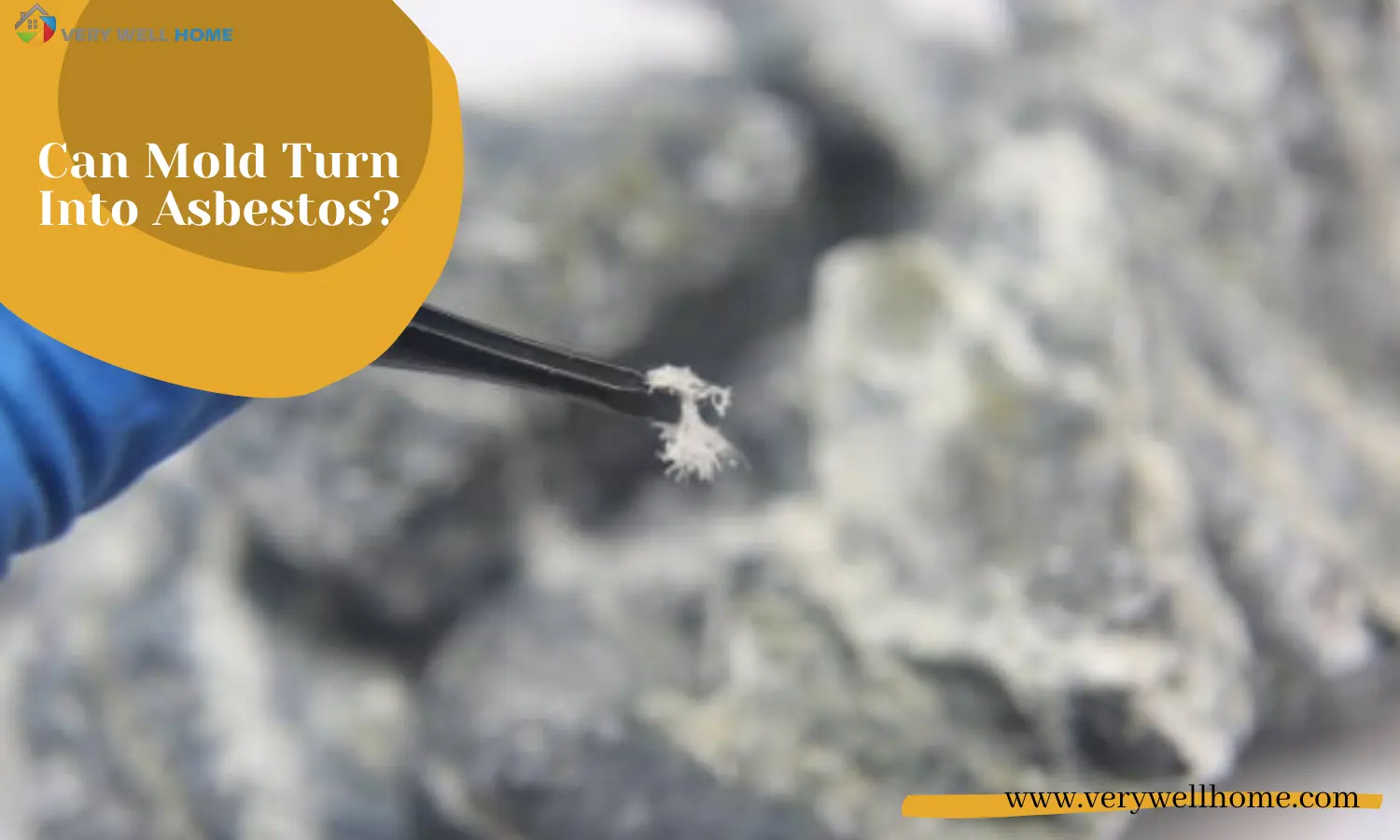Mold can often be mistaken for asbestos, as the two share many of the same airborne characteristics. In order to understand how to properly deal with a mold issue, it is important to first understand the difference between the two. This blog post will explore the differences between mold and asbestos, and provide tips on how to address a potential mold problem in your home.
Related Post: Overall Best Air Purifiers
Related Post: Best Air Purifier for Mold
Related Post: Best Air Purifier for Asbestos
Related Post: Can Mold On Toothbrush Make You Sick?

Can Mold Turn Into Asbestos?
Asbestos is a fibrous mineral that can be found in rock formations around the world. For many years, it was used in a variety of construction and industrial applications because of its resistance to heat and chemicals. However, exposure to asbestos can cause serious health problems, including lung cancer.
Mold is a type of fungus that can grow on damp surfaces. While most mold is not harmful, some types can produce toxins that can cause respiratory problems. Some people have speculated that mold can turn into asbestos, but there is no scientific evidence to support this claim.
It is important to remember that mold and asbestos are two completely different substances. Asbestos poses a serious health risk, so it is important to get rid of any asbestos in your home or workplace. If you think you may have asbestos, please contact a qualified professional for removal.
What’s Worse Asbestos Or Mold?
Asbestos and mold are both substances that can be found in many homes. While asbestos is a naturally occurring mineral, mold is a type of fungus. Both asbestos and mold can cause health problems if inhaled, but the health effects of asbestos are more serious.
Asbestos fibers can become lodged in the lungs, leading to asbestos-related diseases such as lung cancer, mesothelioma, and asbestosis. In contrast, mold spores are usually only harmful if a person has an allergy or underlying respiratory condition. However, exposure to mold can also cause severe health complications such as heart disease, memory loss, and liver damage. Therefore, on a long-term basis, asbestos is worse than mold.
How do you know if you’ve been exposed to asbestos?
Asbestos exposure can occur during remodeling or demolition projects when workers disturb asbestos-containing materials and release fibers into the air. It can also happen when asbestos-containing materials are improperly removed.
Symptoms of asbestos exposure may not appear for many years after exposure occurs. However, some common signs include shortness of breath, a persistent cough, and chest pain. Pleural plaques, which are thickened patches of tissue on the lungs, are another common symptom. In severe cases, exposure to asbestos can lead to mesothelioma, a rare but aggressive form of cancer.
If you have been exposed to asbestos, it is important to see a doctor who can provide more information on your risk of developing health problems.
What should you do if you are exposed to asbestos?
If you think you have been exposed to asbestos, it is important to seek medical attention as soon as possible. Asbestos exposure can lead to a number of serious health problems, including lung cancer, mesothelioma, and asbestosis. Early diagnosis and treatment are essential for increasing the chances of a positive outcome.
Your doctor will likely order a chest x-ray or CT scan to look for evidence of asbestos fibers in your lungs. If you are diagnosed with an asbestos-related disease, you will need to undergo treatment right away. Depending on the severity of your condition, this may involve surgery, chemotherapy, or radiation therapy. If you have been exposed to asbestos, it is important to take action immediately to protect your health.
What Are The Symptoms Of Mold Exposure?
Mold exposure can cause a variety of symptoms, including coughing, postnasal drip, sneezing, and dry or scaly skin. Additionally, individuals exposed to mold may experience itchy eyes or a stuffy or runny nose or throat. Although the specific severity and duration of these symptoms will vary from person to person, mold exposure is generally considered to be an uncomfortable and unpleasant experience.
If you are experiencing any of these symptoms after spending time in a moldy environment, it is important to seek medical attention immediately in order to get proper treatment and relief. Whether your symptoms are mild or severe, taking action as soon as possible will help you recover more quickly and protect your health in the long term.
What Should You Do If You Are Exposed To Mold?
If you suspect that you have been exposed to mold, it is important to take immediate action. The first step is to identify the source of the mold and remove it, if possible. If the source cannot be removed, you will need to take steps to prevent the mold from spreading. Once the source has been removed or contained, you should clean all affected surfaces with a solution of bleach and water. It is also important to ventilate the area to prevent further growth of mold. If you have asthma or another respiratory condition, you should see a doctor immediately for treatment. Mold exposure can cause serious health problems, so it is important to take quick and decisive action if you suspect that you have been exposed.
Conclusion:
Mold and asbestos are both common indoor pollutants, but exposure to asbestos can have much more serious health consequences than exposure to mold. If you think that you have been exposed to asbestos, it is important to seek medical attention right away in order to prevent the development of serious conditions like lung cancer or mesothelioma.
In addition to seeking medical treatment, it is also important to take steps to remove the source of mold exposure and prevent further growth of mold. With early diagnosis and treatment, you can recover more quickly and protect your health in the long term.

Danny is a passionate writer who loves to share his knowledge about air purifiers. He’s been writing for 10 years, and he’ll share all that experience with Very Well Home viewers to help you make the best decision when it’s time to buy an appliance!



![Air Purifier Made in the USA: An Insight Into 9 Best Devices of [y] air purifier made in the usa](https://verywellhome.com/wp-content/uploads/2023/07/air-purifier-made-in-the-usa-150x150.jpg)

